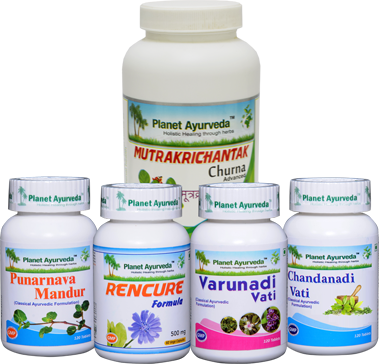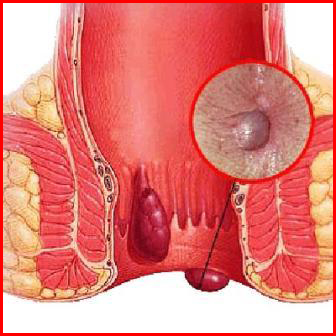Interstitial Cystitis or IC is also known as the Painful Bladder Syndrome. It is very tough to diagnose such tricky situation. Though, there's no cure to it, however, the treatment can make life easy. It has different signs and symptoms. So, many a time, scientists confuse it with some other disease. Here, we shall discuss about this disorder in details.
DEFINITION OF INTERSTITIAL CYSTITIS
Interstitial Cystitis or IC is a painful bladder complication. It is chronic in nature. The urinary bladder of the human body retains the urine after it is filtered through the kidneys. This situation in Interstitial Cystitis often causes pressure beneath the belly button. It is also very painful in nature. It leads to sudden and urgent tripping of urine as well. There may be a situation, where you need to urinate as many as 60 times a day if the situation worsens to a huge extent. This disease may affect your sleeping patterns, ability to work, exercise and fitness regime and social life to a huge extent.
WHAT ARE THE VARIOUS CAUSES OF INTERSTITIAL CYSTITIS ?
Though the exact cause of Interstitial Cystitis is yet to be known, there are lot of ideas about the causes of this painful disorder. These are given below:
- Some complications with the tissues of the bladder
- Swelling in the body leading to release of chemicals
- Disturbance in Nervous system
- Disturbed immune system
- Some chemicals in urine damaging the bladder
SOME IMPORTANT SYMPTOMS OF INTERSTITIAL CYSTITIS
The symptoms differ from individuals to individuals. These symptoms even vary every week. They may linger for years as well. And, even may pass without treatment for years after years.
Some common symptoms are as follows:
- Too much pressure in the urinary bladder
- Pain in the lower portion of the bladder
- Pain in the lower back region, pelvic region, urethra and lower tummy
- Pain in vagina or vulva in women
- Pain in testicles, scrotum, penis in men
- The urge to urinate often
- Pain while having sex
- Pain after sex or during orgasm in men
The pain in the bladder can be so severe that it may range from being a dull one to a piercing one. One may feel severe pain during urination. One may feel a burning sensation while urinating.
SYMPTOMS THAT MAY COMPLICATE THE SITUATION FURTHER
Some situations, which may really worsen the situation furthermore are the following:
- Menstrual period
- Certain foods
- Some drinks
- Too much stress
The risk of getting affected with this disorder increases with age. Generally people above the age 40 tends to be affected with interstitial cystitis.
AYURVEDIC CONCEPT OF INTERSTITIAL CYSTITIS
Ayurveda, the ancient science that deals with healing indicates that interstitial cystitis or IC is a disorder, which is due to imbalanced Pitta and vata. In Ayurveda Interstitial Cystitis can be considered as Bastishoth. Ayurveda considers when too much vata accumulates in the body it leads to irritation of bladder. e.g when Praanvata is disturbed due to excessive stress then apaanvata is also disturbed and there is an urge to urinate frequently. Many times Onemay feel burning sensation while urinating due to involvement of pitta also.
HOME REMEDIES FOR INTERSTITIAL CYSTITIS
- To treat this disorder, there are certain home remedies. But, often this disorder vanishes by itself. But, if you need treatment to get relief from the signs, symptoms and pain, you need to follow these home remedies.
- Try to retrain the bladder to hold the urine for more period of time. Try to make use of your will power to do it. Say, if you can hold the urine for 30 minutes, try stretching the time limit to 45 minutes or so.
- Alleviate stress completely. Stress is a dangerous issue and can trigger this disorder dangerously. Do a bit of yoga and, meditation to combat stress. Try certain relaxation techniques or talk to some friends and fight away stress completely.
- Carry out some low-impact physical activities like stretching or walking.
- Wear loose fitting clothes. Because tight clothes often put pressure on the bladder. And, this leads to triggering the issue more.
- Quit smoking. It's dangerous.
- Try to avoid the common triggers of this disorder. These are the citrus fruits like lemons, oranges, vegetables like tomato, chocolate, carbonated drinks, caffeinated beverages like sodas, coffee, artificial sweeteners, spicy food and alcohol. Also, visiting a professional is important to figure out the dietary recommendation for your disorder. According to the severity of the disorder, you'll be recommended proper diet.
HERBAL REMEDIES FOR INTERSTITIAL CYSTITIS
Planet Ayurveda has provided the combo herbal pack for the disorder. This pack includes the following medicines
1. CHANDERPRABHA VATI
It is having 23 natural ingredients. These include Vacha, Mustak, Amalaki and many more. It pacifies vata effectively.
DOSE: 2 tablets twice daily with lukewarm water.
2. CHANDANADI VATI
This herbal medicine contains some of the natural materials like Shweta chandana, Maricha, Amalaki and some more. It pacifies Pitta effectively.
DOSE: 2 tablets twice daily with lukewarm water.
3. PUNARNAVA MANDUR
It helps to maintain the balance of Pitta and Vata which are the major causes of this disorder.
DOSE: 2 tablets twice daily with lukewarm water.
4. VARUNADI VATI
It contains herbs like Varun, Gokshur, Punarnava and Shuddha Guggulu.
DOSE: 2 tablets twice daily with lukewarm water.
5. BOSWELLIA CURCUMIN
DOSE: 1 capsule twice daily with lukewarm water.
These 5 herbal formulations make up the herbal pack for Interstitial Cystitis.
It is highly advised to follow the home remedies and bring about certain modification in the lifestyle and visit a medical practitioner to fight away the complication completely.




















